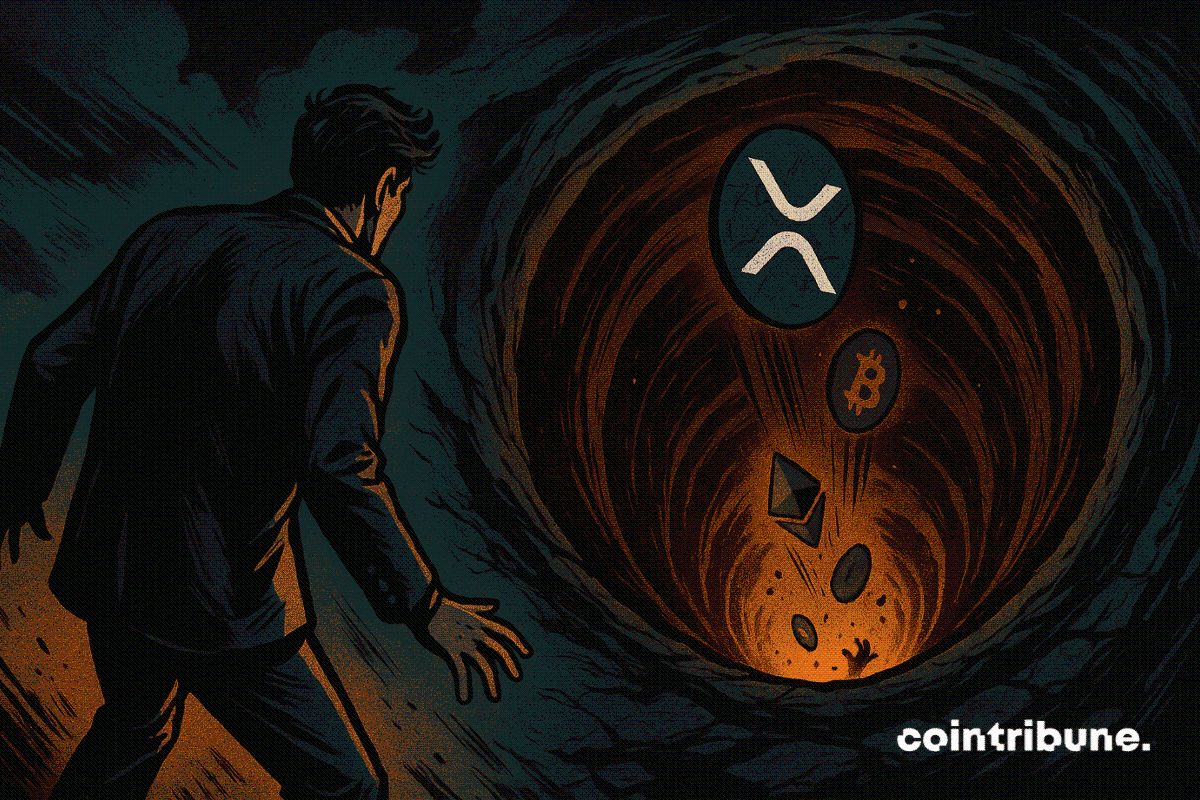Bitcoin News Today: India's Oil Gambit Sparks Trump Tariff War on Reliance
- U.S. tariffs on India escalate over Reliance's Russian oil imports, raising costs for Mukesh Ambani's energy giant. - Trump administration seeks to pressure India to abandon Russian oil, clashing with New Delhi's economic-first energy strategy. - Reliance diversifies suppliers and shifts focus to digital/green energy while oil remains its core revenue driver. - India's $48.2B export sector faces strain, prompting tax reforms and speculative crypto-based economic proposals.
Mukesh Ambani, India’s wealthiest individual and chairman of Reliance Industries, is now under U.S. scrutiny amid escalating trade tensions between the U.S. and India over Indian imports of Russian oil. Reliance has secured significant cost advantages through its long-term supply deal with Rosneft, a Russian oil giant, saving an estimated $571 million in the first half of 2025 alone. This financial benefit, however, has drawn the ire of the Trump administration, which has raised the tariffs on Indian goods from 25% to 50%, citing pressure on India to cease its purchases of Russian oil. Despite these accusations, Reliance has not violated any sanctions, as the Russian oil it imports is not officially restricted.
The Trump administration’s move is seen as a strategic effort to align India with U.S. foreign policy goals, particularly in the context of the ongoing Russia-Ukraine conflict. The U.S. has called for Indian companies like Reliance to shift their energy imports away from Russia, a stance that conflicts with India’s insistence on sourcing oil based on economic value rather than political alignment. India has not joined Western sanctions on Russia and maintains its position that its energy strategy must remain independent of geopolitical pressures.
Reliance, which operates one of the world’s largest refining complexes in Jamnagar, has historically sought to optimize its crude oil procurement through cost-effective long-term agreements. Its 10-year contract with Rosneft reflects this strategy, locking in oil at significantly discounted prices. However, the Trump administration’s imposition of tariffs has added financial pressure on Reliance, potentially affecting the viability of its oil imports and its broader profitability. Analysts note that oil and gas still account for over 50% of Reliance’s revenue and 40% of its EBITDA, making the company particularly vulnerable to shifts in global oil markets.
In response to the growing geopolitical scrutiny, Reliance has adopted a more discreet approach. During a recent investor meeting, Mukesh Ambani avoided addressing the Russia issue entirely, instead focusing on advancements in Jio’s AI initiatives and clean energy projects. This strategic pivot highlights the company’s broader ambition to transition from fossil fuels to digital and green energy, although the immediate reliance on oil remains significant. Reliance has also begun diversifying its crude oil suppliers, with recent purchases of U.S. crude seen as both a potential diplomatic gesture and a strategic hedge against future disruptions.
The broader economic implications of the U.S. tariffs extend beyond Reliance. The Indian government has estimated that the tariffs will impact $48.2 billion worth of exports, disproportionately affecting labor-intensive sectors like textiles, gems, jewelry, and leather goods. Exporters warn that the tariffs could render several product lines unviable, threatening jobs and slowing economic growth. In an effort to mitigate the impact, Prime Minister Narendra Modi has announced tax reforms and incentives for small businesses, including a proposed simplification of the goods and services tax (GST) system.
Meanwhile, some Indian financial analysts have proposed alternative strategies for countering the tariffs. Notably, crypto analyst Kashif Raza suggested that India could harness its renewable energy surplus for Bitcoin mining, estimating potential annual revenues of up to $13.12 billion. Other proposals include the creation of a Bitcoin treasury or the attraction of Bitcoin ETF investments. While these ideas remain speculative and face regulatory hurdles in India, they reflect the urgency of finding alternative economic pathways in the face of escalating trade tensions.
Source:
Disclaimer: The content of this article solely reflects the author's opinion and does not represent the platform in any capacity. This article is not intended to serve as a reference for making investment decisions.
You may also like
Google executive makes millions of dollars overnight through insider trading
Insider addresses manipulated Google's algorithm by referencing prediction market odds.

Stablecoins in 2025: You Are in Dream of the Red Chamber, I Am in Journey to the West
But in the end, we may all arrive at the same destination through different paths.

XRP’s Extreme Fear Level Mirrors Past 22 % Rally

Critical Bitcoin Bear Market Signal: 100-1,000 BTC Wallet Buying Slows Dramatically